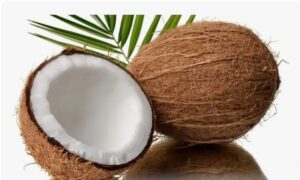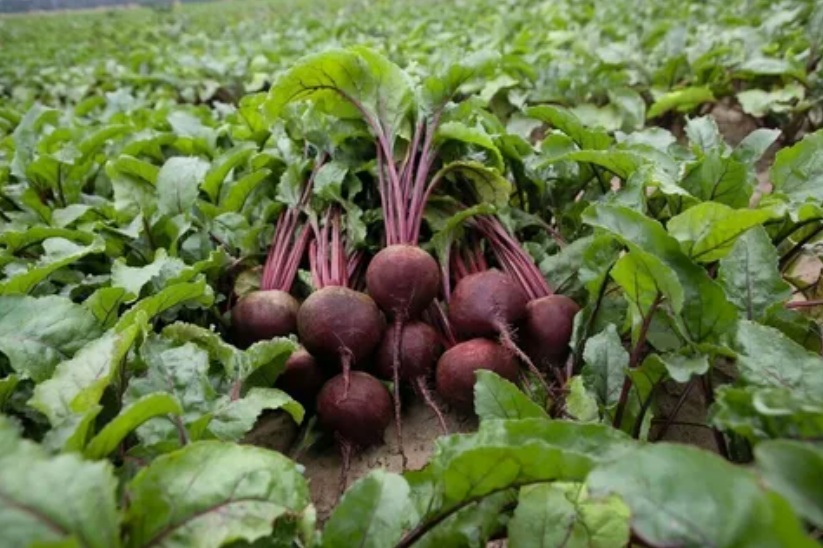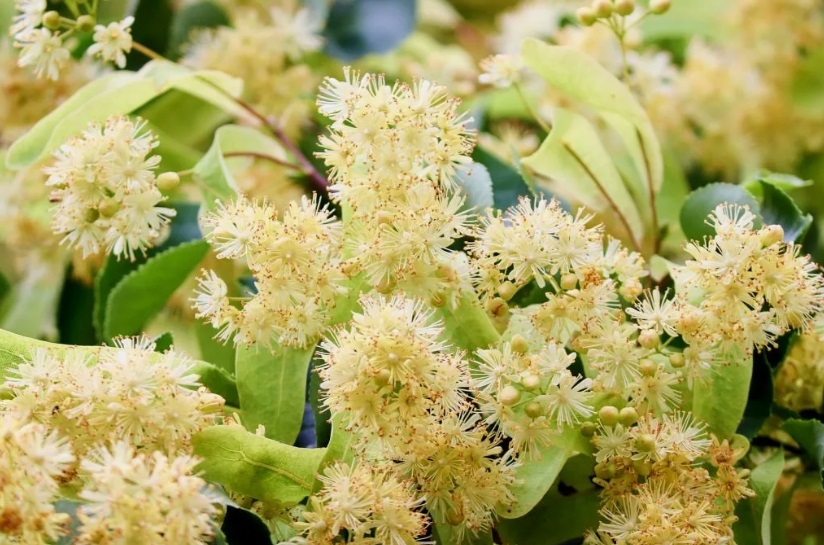Coconut: The Versatile Wonder of Nature
Coconut, often referred to as the ‘Tree of Life,’ is one of the most versatile and nutritious gifts of nature. This tropical fruit is a staple in many households worldwide and is lauded for its culinary, medicinal, and cosmetic uses. Let’s delve deeper into what coconuts are, where they grow, their multitude of benefits, and how they can be utilized in daily life.
What is Coconut and Where Does It Grow?
The coconut is the fruit of the coconut palm (Cocos nucifera), a tree that thrives in tropical and subtropical climates. The word ‘coconut’ stems from the Portuguese and Spanish term ‘coco,’ meaning ‘head’ or ‘skull,’ owing to the three small holes on the coconut shell that resemble a face.
Coconut palms are typically found in coastal regions, thriving in sandy soil with high salt tolerance. They grow abundantly in countries across Asia (such as India, the Philippines, and Indonesia), Africa, the Pacific Islands, and Central and South America. Coconuts are a key agricultural crop in these areas, providing nourishment, livelihood, and ecological benefits.
What Are the Benefits of Coconut?
Coconuts offer a wealth of benefits, ranging from health and nutrition to skincare and beyond. Here’s a breakdown of their advantages:
1. Nutritional Richness
Coconut provides a variety of nutrients, including:
Electrolytes: Coconut water is a natural source of hydration and is rich in potassium, magnesium, and sodium.
Healthy Fats: The meat contains medium-chain triglycerides (MCTs), which are easier to digest and provide a quick energy boost.
Fiber: Consuming coconut meat or flakes aids in digestion and promotes gut health.
Antioxidants: Coconut oil and water contain compounds that combat oxidative stress and reduce inflammation.
2. Energy Booster
Coconut’s healthy fats make it an excellent source of energy. The body metabolizes MCTs quickly, providing an instant fuel source for the brain and muscles.
3. Skincare and Hair Health
Coconut oil is a popular natural remedy for moisturizing skin, treating dryness, and promoting healthy, shiny hair. It can also soothe minor burns, cuts, or insect bites due to its anti-inflammatory properties.
4. Immune Support
Coconuts are rich in lauric acid, an antimicrobial compound that helps strengthen the immune system and fight off infections.
5. Stress and Mood Booster
The natural aroma of coconuts, combined with their nutrient composition, can boost serotonin levels, reduce stress, and improve overall mood.
Where and How Can We Use Coconut?
Coconuts are incredibly versatile and can be utilized in numerous ways, both in and outside the kitchen:
1. Culinary Uses
Coconut Water: A natural thirst quencher, it can be consumed directly as a healthy beverage.
Coconut Milk and Cream: Made by blending coconut meat with water, these products are used in curries, soups, and desserts.
Coconut Oil: Common in cooking and baking, coconut oil adds flavor and serves as a healthier alternative to some other fats.
Coconut Sugar: Derived from the sap of the coconut flower, it is a natural sweetener with a lower glycemic index than refined sugar.
Dried Coconut (Desiccated): Used in baked goods, granola, and snacks.
2. Beauty and Personal Care
Coconut oil is a top choice in beauty regimens for:Hair masks to reduce dandruff and split ends.
Skin moisturizers for soft, hydrated skin.
Lip balms and natural deodorants.
3. Household Uses
Coconut shells are repurposed as utensils or decorative items.
Coconut fiber (coir) is used for making mats, ropes, and brushes.
4. Industrial and Ecological Uses
Coconut husks and shells are used as biofuels, an eco-friendly energy source.
Its trees serve as natural windbreakers in coastal areas.
What Are Coconut’s Health Cures?
For centuries, coconuts have been used in traditional medicine to treat various health conditions. Modern research supports many of these uses. Here are some ways coconuts contribute to health cures:
1. Improving Digestion
Coconut, rich in dietary fiber, promotes gut health, alleviating symptoms of constipation, bloating, and indigestion. Coconut water also acts as a gentle laxative.
2. Boosting Heart Health
Despite being high in fats, the MCTs in coconut oil may help improve cholesterol levels by increasing HDL (good cholesterol) and reducing LDL (bad cholesterol).
3. Enhancing Weight Loss
MCTs in coconuts are metabolized quickly, promoting fat burning and reducing appetite. This makes coconut oil a favorite in ketogenic and low-carb diets.
4. Supporting Diabetes Management
Coconut sugar has a lower glycemic index compared to refined sugar, making it a better choice for people with diabetes. Additionally, MCTs may improve insulin sensitivity.
5. Hydration and Electrolyte Balance
Coconut water is a natural rehydration solution, ideal for restoring electrolytes after exercise, illness, or staying in hot climates.
6. Skin and Wound Healing
Coconut oil exhibits antibacterial and antifungal properties, aiding in the healing of minor wounds, burns, and infections.
7. Boosting Brain Function
Preliminary studies suggest that ketones produced by the consumption of MCTs in coconut oil may serve as an energy source for the brain, potentially benefiting individuals with Alzheimer’s disease.
8. Reducing Infections
The antimicrobial compounds (like lauric acid) in coconuts fight bacteria, viruses, and fungi, making them effective in supporting immune health.

Beyond the Beach: Unveiling the Practical and Powerful Potential of Coconut
Coconut, the fruit of the coconut palm, conjures images of tropical beaches and exotic vacations. But beyond its picturesque appeal, this versatile ingredient offers a wealth of culinary possibilities and significant health benefits, making it a practical addition to your everyday diet. From sweet treats to savory staples, coconut can transform your meals and contribute to your overall well-being.
Culinary Versatility: A World of Coconut Dishes
The beauty of coconut lies in its multifaceted nature. Different parts of the coconut, each with its unique texture and flavor, can be used to create a diverse range of dishes.
Coconut Milk & Cream: Rich and creamy, coconut milk and cream are staples in Southeast Asian and Indian cuisine. They form the base for delicious curries like Thai green curry and Indian korma. Use them in soups, stews, and sauces for a touch of richness and subtle sweetness. They can also be used as a dairy-free alternative in desserts like puddings, ice cream, and cheesecakes.
Coconut Oil: A popular cooking oil with a distinctive flavor, coconut oil is perfect for stir-fries, frying, and baking. Use it to add a subtle coconut flavor to your cookies, cakes, and even popcorn.
Desiccated Coconut: This versatile ingredient adds texture and flavor to baked goods, candies, and savory dishes. Sprinkle it on top of oatmeal, yogurt, or salads for a touch of sweetness and crunch. Use it in granola, energy balls, and homemade trail mix. In savory dishes, it can be used as a coating for chicken or fish before frying or baking.
Coconut Water: Refreshing and hydrating, coconut water is a natural electrolyte drink.
Coconut Flour: A gluten-free alternative to wheat flour, coconut flour is a popular choice for those with dietary restrictions. Use it in baking to create light and fluffy cakes, muffins, and breads. Keep in mind that it absorbs more liquid than wheat flour, so you’ll need to adjust your recipes accordingly.
Fresh Coconut: Enjoy a fresh, young coconut by drinking the water and scraping the flesh. The flesh can be used in smoothies, salads, or eaten on its own.
Dishes Where Coconut Shines:
The possibilities are truly endless, but here are some examples of dishes where coconut is a star ingredient:
Curries: Thai Green Curry, Indian Korma, Malaysian Rendang
Soups: Tom Kha Gai (Thai Coconut Soup), Caribbean Callaloo Soup
Desserts: Coconut Macaroons, Coconut Cream Pie, Coconut Rice Pudding
Breakfast: Coconut Oatmeal, Coconut Pancakes, Coconut Yogurt Parfait
Snacks: Energy Balls, Granola Bars, Coconut Chips
Health Benefits: A Tropical Treasure
Beyond its culinary uses, coconut offers a range of potential health benefits.
Healthy Fats: Coconut contains medium-chain triglycerides (MCTs), which are metabolized differently than other fats. MCTs are not stored as fat, they are quickly absorbed and used as energy.
Improved Heart Health: Despite being a saturated fat, coconut oil has been shown to improve cholesterol levels in some studies.
Antimicrobial Influence: Coconut oil is antimicrobial. It can be a great cleaner for bacteria, viruses, and fungi.
Improved Digestion: The fiber in coconut milk and flesh can help promote healthy digestion and prevent constipation.
Skin and Hair Health: Coconut oil is a wonderful ingredient for skin, hair and care products. It can help moisturize the skin, reduce inflammation, and promote healthy hair growth.
Coconut for Cold and Flu Relief: A Natural Remedy?
While not a replacement for medical care, coconut can be a soothing and supportive addition to your regimen when battling a cold or flu.
Hydration: Coconut water is an excellent source of electrolytes, helping to keep you hydrated when you’re feeling under the weather.
Soothing Sore Throat: The creamy texture of coconut milk can soothe a sore throat. Warm coconut milk with honey and a touch of ginger can be particularly comforting.
Immune Support: The lauric acid in coconut oil may help boost your immune system and fight off infection.
Energy Boost: MCTs in coconut oil can provide a quick and sustained energy boost when you’re feeling fatigued.
Conclusion: Embrace the Versatility of Coconut
From its creamy milk to its nutrient-rich oil, coconut offers a wealth of culinary possibilities and potential health benefits. By incorporating this versatile ingredient into your diet, you can elevate your meals, support your well-being, and even find some comfort during cold and flu season. So, explore the world of coconut and discover its practical and powerful potential for yourself.
A Treasure from Nature
Coconut proves its worth as an indispensable resource for nutrition, health, skincare, and lifestyle. Every part of the coconut is used, from its water to its meat, from its shell to its seed. Its ability to transcend culinary uses and provide widespread health and ecological benefits makes it a true testament to nature’s ingenuity.
So, the next time you sip on coconut water, cook with coconut oil, or treat your skin to some coconut goodness, remember—it’s more than just a tropical ingredient. It’s a powerhouse of nutrients, a sustainable resource, and a valuable ally for your health and well-being!
You can read below writings
The Humble Onion: A Culinary Staple with Remarkable Benefits
What is White Cabbage and Where Does it Grow
What is Coffee and Where Does It Grow
Lemon: The Tangy Wonder – Benefits, Uses, and More






